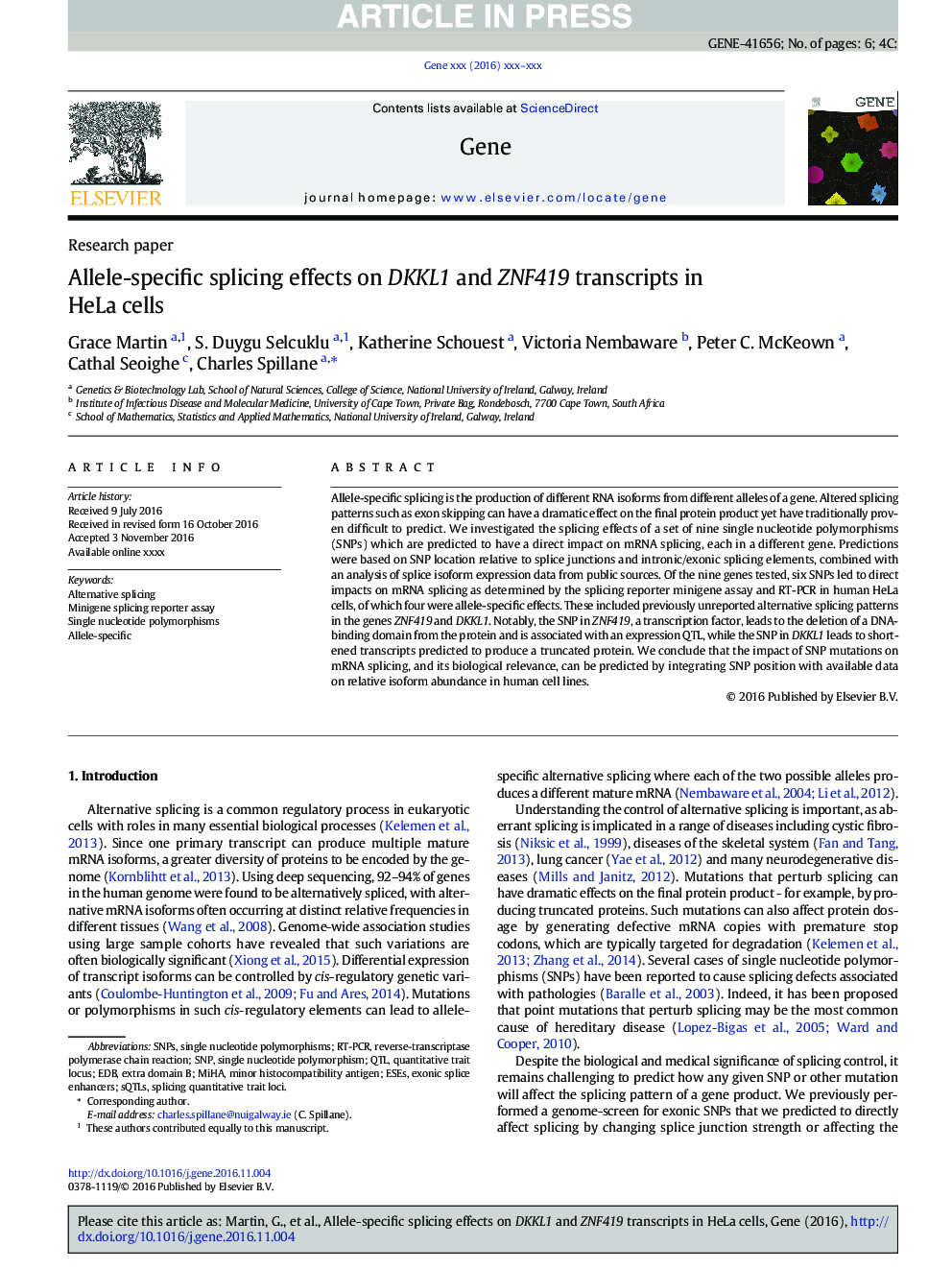| Article ID | Journal | Published Year | Pages | File Type |
|---|---|---|---|---|
| 5589906 | Gene | 2017 | 6 Pages |
Abstract
Allele-specific splicing is the production of different RNA isoforms from different alleles of a gene. Altered splicing patterns such as exon skipping can have a dramatic effect on the final protein product yet have traditionally proven difficult to predict. We investigated the splicing effects of a set of nine single nucleotide polymorphisms (SNPs) which are predicted to have a direct impact on mRNA splicing, each in a different gene. Predictions were based on SNP location relative to splice junctions and intronic/exonic splicing elements, combined with an analysis of splice isoform expression data from public sources. Of the nine genes tested, six SNPs led to direct impacts on mRNA splicing as determined by the splicing reporter minigene assay and RT-PCR in human HeLa cells, of which four were allele-specific effects. These included previously unreported alternative splicing patterns in the genes ZNF419 and DKKL1. Notably, the SNP in ZNF419, a transcription factor, leads to the deletion of a DNA-binding domain from the protein and is associated with an expression QTL, while the SNP in DKKL1 leads to shortened transcripts predicted to produce a truncated protein. We conclude that the impact of SNP mutations on mRNA splicing, and its biological relevance, can be predicted by integrating SNP position with available data on relative isoform abundance in human cell lines.
Keywords
Related Topics
Life Sciences
Biochemistry, Genetics and Molecular Biology
Genetics
Authors
Grace Martin, S. Duygu Selcuklu, Katherine Schouest, Victoria Nembaware, Peter C. McKeown, Cathal Seoighe, Charles Spillane,
